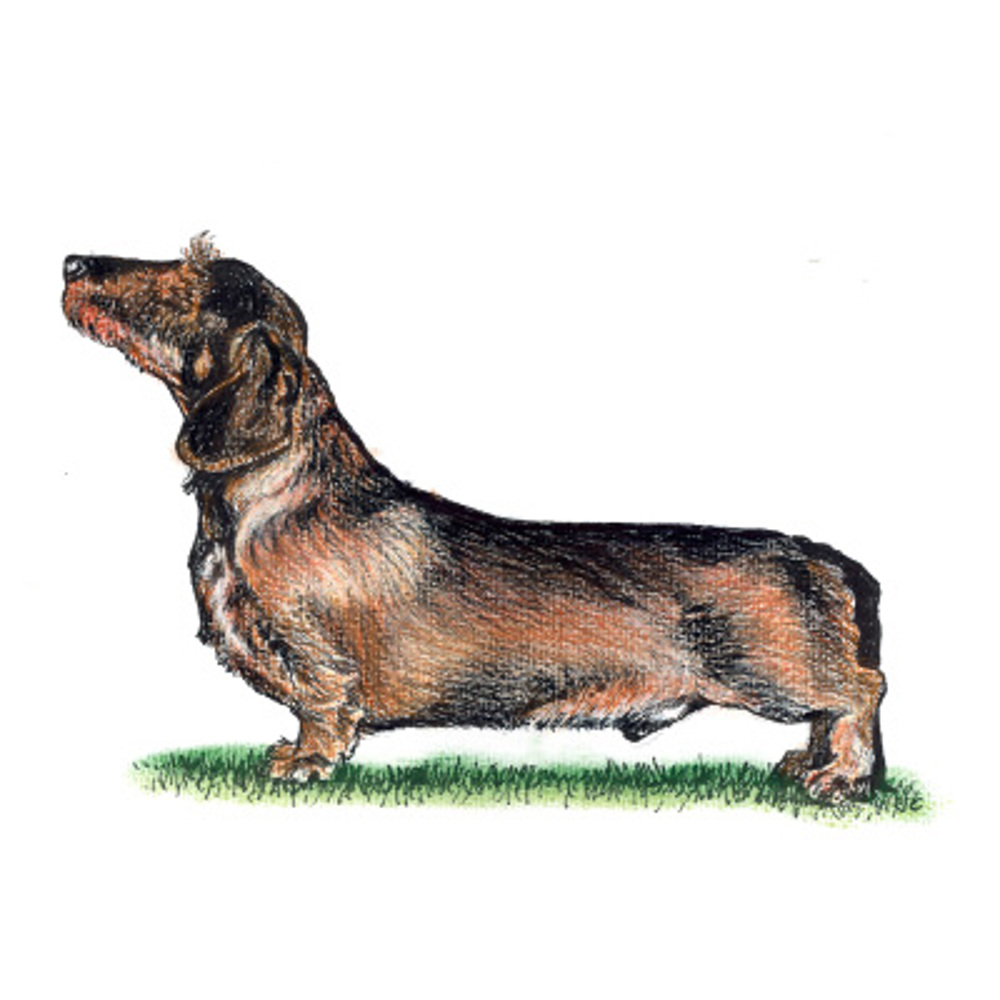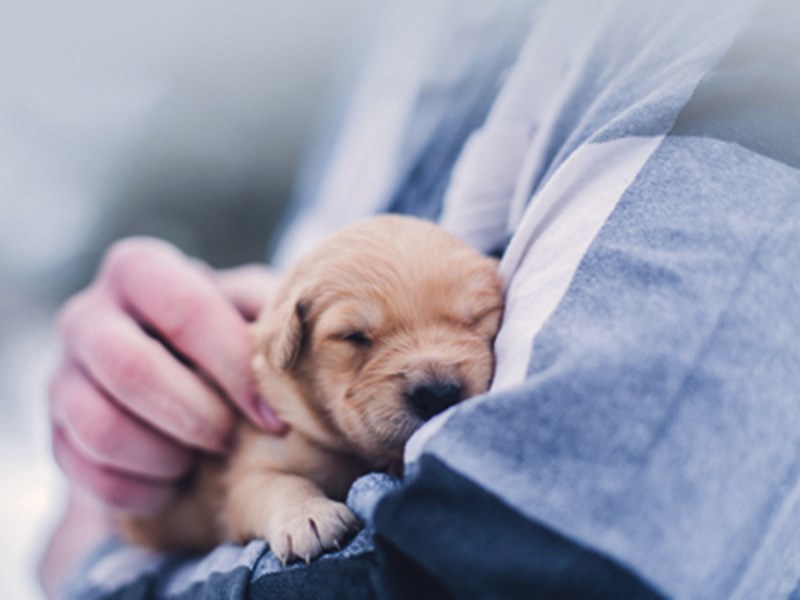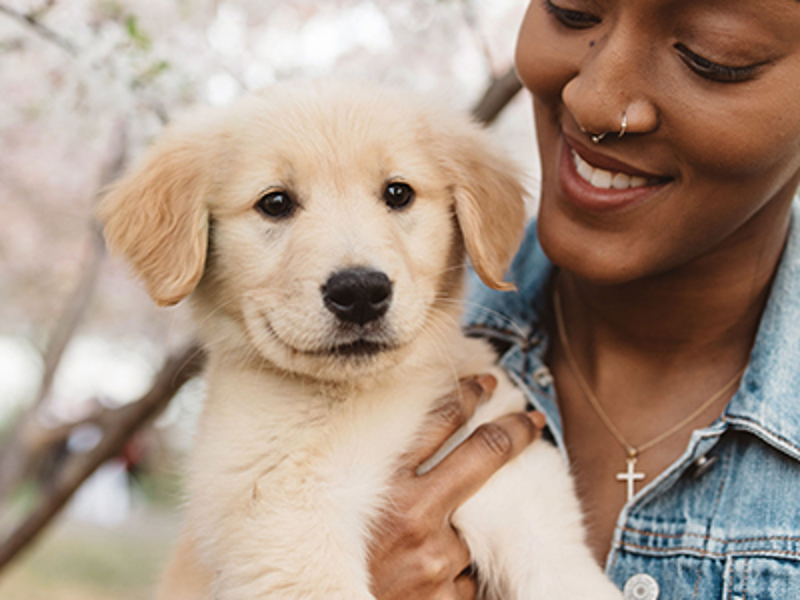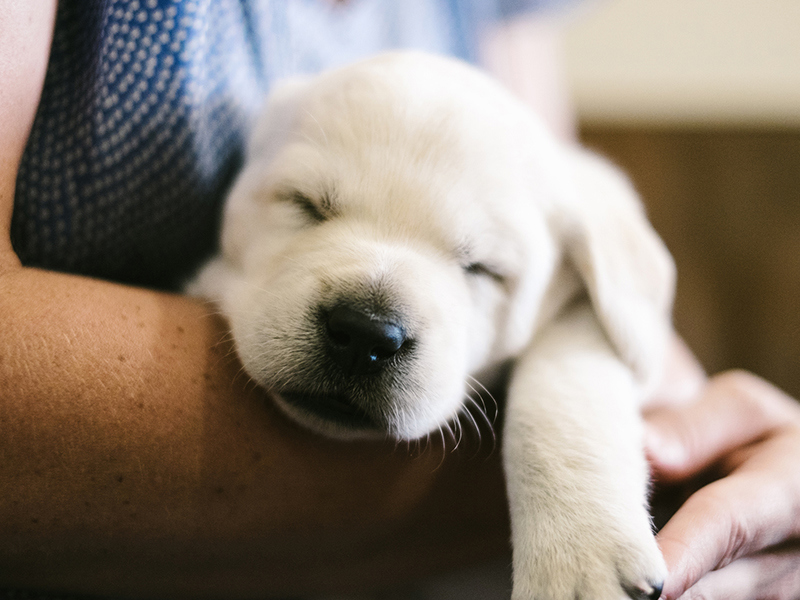
Dachshund (Wire Haired)
Breed characteristics
- Size
- Medium
- Exercise
- Up to 1 hour per day
- Size of home
- Small house
- Grooming
- More than once a week
- Coat length
- Medium
- Sheds
- Yes
- Lifespan
- Over 12 years
- Vulnerable native breed
- No
- Town or country
- Either
- Size of garden
- Small/ medium garden
About this breed
Originating in Germany where he is known as the Teckel (badger dog) the Dachshund, is still used for both tracking wounded game such as deer, and for going to ground after badger or rabbits. In his native country there are three sizes: standard, miniature and Kaninchen (rabbit dog) all defined by measuring the circumference of the chest.
In the UK there are two sizes with miniatures preferably weighing under 5 kilograms.
There are three coat types in each variety: the Smooth haired, the Long haired and the Wirehaired and the six varieties all share the same breed standard, divided by size and coat.
Images for this breed
The Hound breed group
Breeds originally used for hunting either by scent or by sight. The scent hounds include the Beagle and Bloodhound and the sight hounds such breeds as the Whippet and Greyhound. Many of them enjoy a significant amount of exercise and can be described as dignified, aloof but trustworthy companions.
Colour Watch
Category 0: Breeds with no NBS colour registration options
Breed Standard colours
Breed standard colour means that the colour is accepted within the breed standard and is a traditional and well-known colour in this breed.
Breed standard colours in this breed include:
- Black & Tan
- Chocolate Dapple & Tan
- Chocolate & Tan
- Chocolate Wild Boar
- Chocolate Wild Boar Dapple
- Red
- Red Dapple
- Shaded Red
- Silver Dapple & Tan
- Wild Boar
- Wild Boar Dapple
Non-breed-standard colours
Non-breed-standard colour means that the colour is not accepted within the breed standard and whilst some dogs within the breed may be this colour it is advised to only select a dog that fits within the breed standards for all points.
Colour is only one consideration when picking a breed or individual dog, health and temperament should always be a priority over colour.
Other colour/s
'Other' means you consider your puppy to be a colour not currently known within the breed and one that does not appear on either the breed standard or non-breed standard list. In this instance you would be directed through our registrations process to contact a breed club and/or council to support you on identifying and correctly listing the new colour.
Health
Whether you’re thinking of buying a puppy, or breeding from your dog, it’s essential that you know what health issues may be found in your breed. To tackle these issues we advise that breeders use DNA tests, screening schemes and inbreeding coefficient calculators to help breed the healthiest dogs possible.
More about health
Important health schemes and tests
We strongly recommend that all breeders, both assured breeders (ABs) and non ABs, use the following (or equivalent) schemes, tests and advice.
Currently there are no additional health screening schemes or DNA tests for this breed. You may want to speak to your breeder, vet or local breed club about any health issues in the breed.
Find out about a particular dog's results
Please visit our Health Test Results Finder to discover the DNA or screening scheme test results for any dog on The Kennel Club's Breed Register.
You can also view the inbreeding coefficient calculation for a puppy's parents, or for a dog you're thinking of breeding from.
Have any questions about health in your breed?
If you have any concerns about a particular health condition in your breed then you may wish to speak to your vet or you could contact your breed health co-ordinator.
Breed health co-ordinators are individuals working on behalf of breed clubs and councils who are advocates for the health and welfare of their chosen breed. They acts as a spokesperson on matters of health and will collaborate with The Kennel Club on any health concerns the breed may have.
To contact your breed health co-ordinator please email
Find out more about health issues in this breed by visiting the Dachshund Breed Council's health website.
The Breed Health and Conservation Plans
Our breed health and conservations plans (BHCPs) use evidence and data to help us understand the health issues found in each pedigree dog breed. These plans help breeders and owners identify health and welfare problems and use information, health tests and health schemes to avoid passing on those problems to future puppies. They also support and provide breeders with tools and specialist expertise to help manage genetic diversity, understand the impacts of close breeding, and find the best ways to preserve the population of their breed.
Working together for the breed
We’ve worked with breed clubs and breed representatives to gather all available evidence to help us determine the priority concerns for the breed and decide how we can work together to manage and reduce these problems.
Breed priorities
The current key priorities for the breed are:
- Eye disease
- Intervertebral disc disease (IVDD)
- Lafora’s in the Miniature Wirehaired variety
The following conditions were also agreed to be kept at watch:
- Colour dilution alopecia (CDA)
- Maintenance of genetic diversity
- Mitral valve disease
- Pes varus
How we plan to make improvements
We’ve agreed the following list of actions with the breed clubs to improve the health of the breed. Both parties are committed to working on these areas and will review these on a regular basis to ensure the actions remain focussed and relevant to the breed’s health.
Breed Club actions include:
- The breed council to send a list of genetically possible coat colours to us to be discussed at the next Colour Not Recognised working group meeting. – COMPLETE (this action was completed in 2020)
- The breed council to continue to encourage participation in IVDD testing with the potential for subsidising tests. – ONGOING
- A Breed Watch proposal to be made for all varieties. Incorrect hindquarter movement, especially in the miniatures, as a possible result of pes varus and sore or runny eyes which may be due to distichiasis. – COMPLETE (this action was completed in 2020. As a note, the Breed Watch system is currently under review)
- Two proposals to be made to the Assured Breeders Scheme for IVDD testing
and participation in the BVA/KC/ISDS Eye Scheme to become recommendations across all Dachshund varieties. – COMPLETE (this action was completed in 2019)
Our actions include:
- To review and assist in promoting the Dachshund cancer
survey, to determine whether particular cancers should also be considered a priority issue. – COMPLETE (no particular issues were identified in the 2018 cancer survey, however a further survey focussing on skin conditions was completed in 2021, with both reports available at the Dachshund Health website)
- To encourage participation in IVDD testing. – ONGOING
- To request an update from the Animal Health Trust (AHT) with regard to progress in development of a swab test for Lafora disease. – COMPLETE (the development of a swab test for Lafora was not completed by the AHT but a test has been developed by another laboratory, although there are some concerns about the test’s accuracy and the use of blood samples is still the recommended test route)
- To keep the breed updated as to the feasibility of developing a spinal scheme – COMPLETE (the IVDD scheme was formally launched by us in 2021, and is being promoted and subsidised by us and Dachshund Health UK)
The full evidence base is available at the discretion of the breed clubs, however if you would like to seek access to the full report, please contact our health team.
Health (The Kennel Club)How do I use this information?
Breeders should be mindful of the top priorities in their breed and ensure they are working to reduce and eliminate the presence of these diseases when choosing to breed their dogs.
Puppy buyers should also be aware of these issues and be sure to ask their breeder how they are contributing towards the above actions, and whether any of these problems have been seen in their breeding lines.
Breed watch
Category 2
Particular points of concern for individual breeds may include features not specifically highlighted in the breed standard including current issues. In some breeds, features may be listed which, if exaggerated, might potentially affect the breed in the future.
Breeding restrictions
There are a number of The Kennel Club's rules and regulations that may prevent a litter from being registered, find out about our general and breed specific breeding restrictions below.
More about breeding
With effect from 1 January 2010, The Kennel Club will not accept the registration of any Dachshund puppies from matings which take place on or after this date, where both parents are dapple. This is due to associated health risks of impaired vision and hearing associated with the dapple gene in this breed.
Dachshund parents of the same breed may produce one or more puppies of a different coat and may be registered as the breed to which its coat most closely conforms. This proviso does not allow for the interchange of Dachshunds between the two sizes. The option to register online is not available and must be submitted by post on a litter application form. A note should be made next to the relevant puppy or in the form of an accompanying letter.
Looking for a puppy?
Looking for a Dachshund (Wire Haired)? Explore our list of puppies and rescue dogs for sale near you.
More information

Need to find out more about a breed?
Use our Find a Club service where you can locate breed clubs that can offer support and advice.

Use our Find a Puppy service
The Kennel Club's Find a Puppy service provides contact details for breeders who have puppies available. Let's help you find your new best friend.

Get the best lifetime pet insurance
At Kennel Club Pet Insurance, we want you to focus on getting the best possible treatment for your dog without worrying about the cost.
